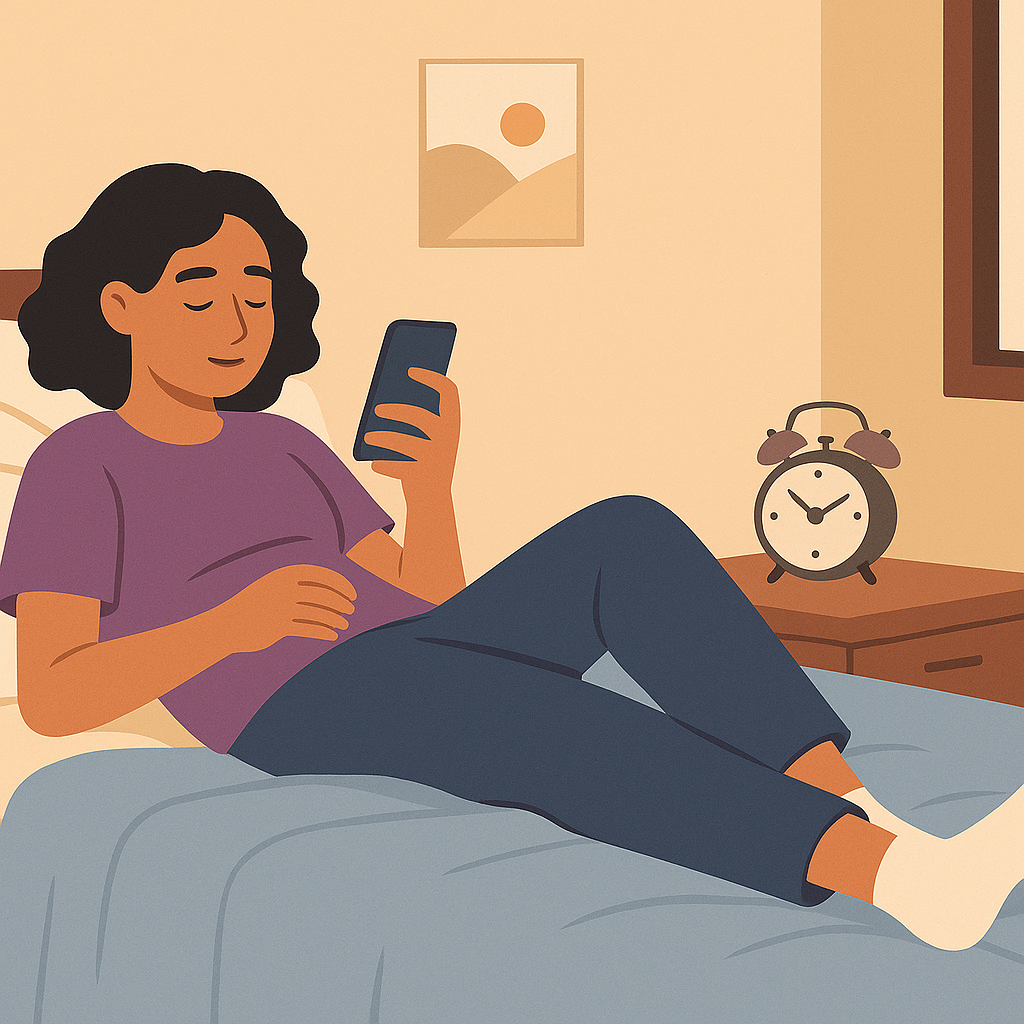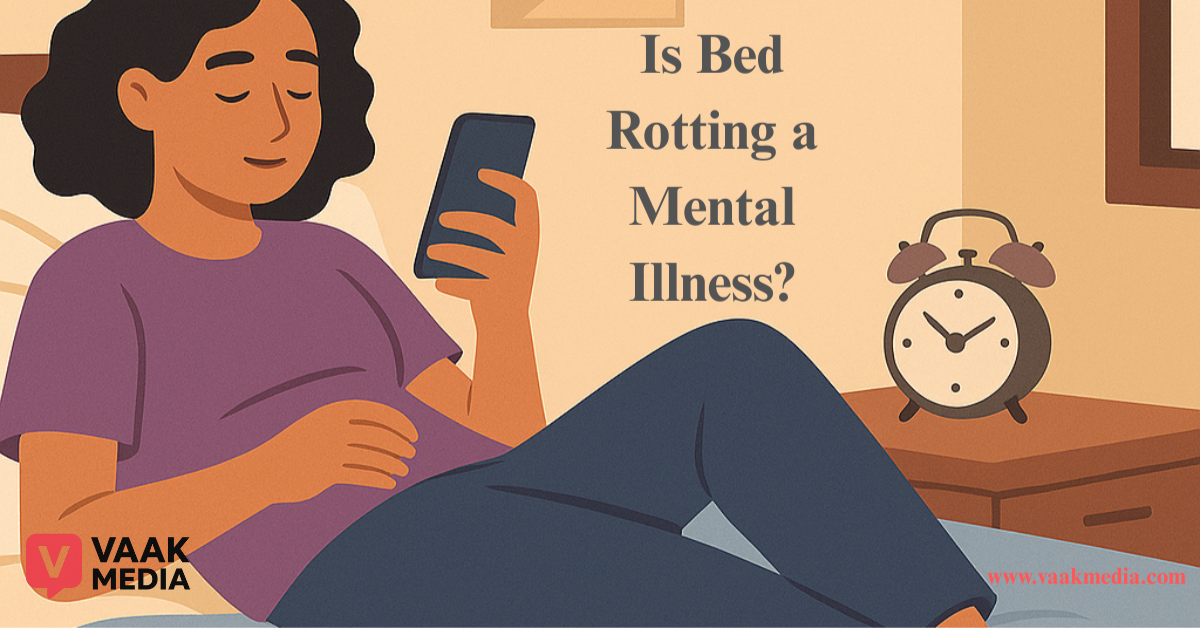
What is Bed Rotting?
“Bed rotting” is a viral Gen Z trend where people spend extended time in bed doing passive activities like scrolling on phones, streaming shows, or simply resting.
While critics may dismiss it as laziness, many see it as a rejection of hustle culture and a low-cost form of self-care in an overstimulated world. Importantly, it’s not about poor hygiene but about choosing stillness over constant productivity.
Is Bed Rotting a Mental Illness?

- Occasional bed rotting: A healthy way to recharge, much like taking a mental health break.
- Excessive bed rotting: May point to depression, anxiety, or burnout. Struggling to leave bed for daily tasks, losing motivation, or isolating socially are potential red flags.
This is why hashtags like #bedrottingdepression and #bedrottingtreatment trend alongside the term.
Positive Effects of Bed Rotting
- Restores mental energy after stressful weeks
- Encourages self-care in an accessible way
- Provides control over one’s time in a fast-paced digital age
Negative Side Effects of Bed Rotting
- Disrupted sleep cycle if practiced during the day
- Physical issues like stiffness, fatigue, and low motivation
- Social isolation from over-avoidance of real-world connections
- Avoidance behavior — may mask deeper stress, depression, or anxiety
Is Bed Rotting Healthy or Harmful?

Like many lifestyle choices, the impact of bed rotting depends on balance and intention.
- ✅ Done occasionally → Can be restorative self-care.
- ❌ Done excessively → Can signal emotional struggles needing attention.
Healthier alternatives: gentle walks, journaling, mindful breathing, or connecting with supportive friends and family.
Final Takeaway
Bed rotting is both a trend and a warning. It reflects Gen Z’s search for balance in a world that demands nonstop productivity. The key question isn’t “Is it good or bad?” — but rather:
👉 “Is it helping you heal, or is it holding you back?”
Frequently Asked Questions (FAQ) about Bed Rotting
1. What does “bed rotting” mean?
Bed rotting is a Gen Z trend where people spend extended time in bed doing passive activities like scrolling social media, watching shows, or napping.
2. Is bed rotting a mental illness?
No, bed rotting itself is not a mental illness. However, if it becomes excessive and interferes with daily life, it may indicate underlying conditions like depression, anxiety, or burnout.
3. Is bed rotting healthy?
Occasional bed rotting can be a healthy way to recharge and rest. But if it becomes a daily routine, it may disrupt sleep patterns, cause physical inactivity, and increase isolation.
4. What are the positive aspects of bed rotting?
It helps restore mental energy, encourages self-care, and gives people a sense of control over their time.
5. What are the negative side effects of bed rotting?
Too much time in bed can lead to poor sleep cycles, stiffness, fatigue, social withdrawal, and avoidance of responsibilities.

